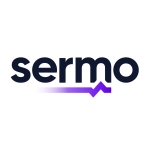
Sermo Barometer Finds Oncologists Globally Want Seven More Minutes With Patients; Can ChatGPT Give Them That Time?
Survey Examines 300+ Oncologists' Sentiments Around New Research, Innovations, Patient Care, and AI
NEW YORK--(BUSINESS WIRE)--A new survey from Sermo, a physician-first online community and leader in HCP insights, of 300+ oncologists revealed they would like an average of seven more minutes per appointment explaining treatment plans to improve the patient experience. On average oncologists reported spending 27.5 minutes with patients explaining treatment plans, however, in an ideal world, oncologists wish they could spend 34 minutes with patients.

“As oncologists, our patient appointments are time-sensitive and every minute is valuable. Having an extra seven minutes would greatly enhance our ability to offer comprehensive treatment overviews, address more patient questions, and provide additional emotional support during this critical phase of their treatment,” said Dr. Guy Jones, Radiation Oncologist, and Sermo Medical Advisory Board Member.
Oncologists Embrace New Mammogram Guidelines and Advocate for Early Detection of Breast Cancer in High-Risk Patients
Breast cancer is top-of-mind for many oncologists given recent recommended changes in patient screening guidelines. Surveyed oncologists overwhelmingly supported the recommended mammogram guideline updates from the U.S. Preventive Services Task Force that all women get screened every other year starting at age 40 as indicated by 88% of oncologists surveyed. Oncologists feel this is an urgent issue as 64% of those surveyed reported that their practice has seen an increase in patients diagnosed with breast cancer from a mammogram before the age of 50. When patients are observed with dense breast tissue, 91% of surveyed oncologists recommend additional screening (such as an ultrasound or MRI) for the early detection of breast cancer. These sentiments align with the FDA’s new guidelines that providers notify patients if they have dense breast tissue.
Oncologists Are Eager to See How AI & ChatGPT Can Save Them Time:
As ChatGPT exists today, oncologists are most interested in exploring how the technology can assist them in reviewing medical literature as reported by 47% of those surveyed. More than a third (34%) of surveyed oncologists have already used ChatGPT in a professional capacity. Hospital-based oncologists were more likely to be earlier adopters of ChatGPT with 41% of those surveyed saying they had used the technology in a professional capacity. Whereas, 21% of private practice oncologists reported having used the technology in a professional capacity.
Sixty-one percent of surveyed oncologists reported that they see an opportunity for AI tools to assist patients during appointments with tasks such as note taking. This sentiment is even higher among early adopters of ChatGPT (79%). Oncologists are also enthusiastic about ChatGPT’s potential to help with translating patient education/complex medical information into layman's terms as reported by 73% of those surveyed.
Additional Key Findings on Oncologist Sentiments:
- 60% of oncologists reported that after a medical congress is a key time to gain the most valuable learnings from data presented by connecting with peers (20%), following KOLs & DOLs on social media (20%), and doing their own research (19%).
- Oncologists are feeling favorable about the future potential of mRNA cancer vaccines as 78% of those surveyed said they would suggest a newly-approved cancer vaccine to their high-risk patients.
- Innovations that oncologists self-reported high expertise in include immunotherapies (84%), liquid biopsies (72%), new biomarkers (69%), and anti-drug conjugates (68%).
- Innovations that oncologists report that they have low expertise in include cell & gene therapies (21%).
- For oncologists who indicated they have low expertise in cell & gene therapies, they had the most interest in educational topics of efficacy data (82%), safety data (72%), and indications/contraindications (69%) to increase their knowledge about this new innovative treatment regimen.
- When just surveying U.S.-based oncologists, the top challenge to incorporating new treatments into their practices is the cost to the patient (24%). Only 10% of European-based oncologists had the same concerns about costs.
This survey was fielded as the 30th edition of Sermo’s ongoing Barometer survey. The survey included more than 300 global oncologists who were surveyed between May 22nd- 28th, 2023. To explore more findings, visit app.sermo.com/barometer.
About Sermo:
Sermo is the largest global healthcare research company and the most trusted physician engagement platform. Sermo engages with more than 1.3 million HCPs across 150 countries and has reach into the U.S. Payer market that now exceeds 230M commercial lives covered.
For over 20 years, Sermo has been turning physician experience, expertise, and observations into actionable business insights that benefit pharmaceutical companies, healthcare partners, and the medical community at large. Sermo offers on-demand access to physicians via a proprietary health-tech ecosystem to gain targeted HCP insights that inform strategic decisioning in real-time. To learn more, visit www.sermo.com.
Contacts
Media:
Allyson Noonan
AN Communications
allyson.noonan@gmail.com
(858)245-7256
Editor Details
-
Company:
- Businesswire
